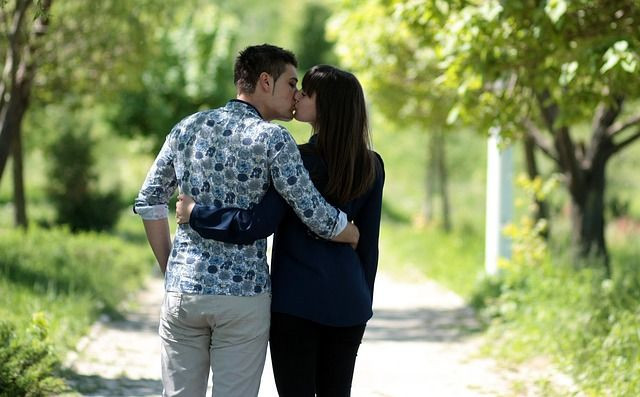The Juliet Effect: The Evolutionary Reason Why Your Mom And Sister Hate Your Hot New Boyfriend

Boy meets girl, girl’s family disapproves of his hunky features and bad-boy sex appeal, and orders her to immediately end their relationship. Although it may not be the classic love story, it's one we most likely all experienced at some point. A new study has suggested that your family’s intense dislike for your “dreamy” boyfriend isn’t personal; it’s likely a natural reaction that stems from a human instinct to preserve their genes.
Previously, researchers from the Norwegian University for Science and Technology investigated why mothers so often dislike their daughter’s choice in a romantic partner. They named this phenomenon the “Juliet effect” after the famous conflict between Juliet and her mother Lady Capulet in Shakespeare's play "Romeo and Juliet." For a new study, now published online in Evolutionary Behavioral Sciences, the team chose to investigate whether the Juliet effect existed in relationships among sisters.
For their study, the team asked female undergraduate students and their sisters to rank 133 different characteristics that would describe the perfect partner for themselves and for their sisters. Interesting trends began to take shape. For example, women tended to rate traits such as being understanding and responsible as being more important in their sister's partner than in their own. On the other hand, women found traits such as being funny, fun, and sexually satisfying as being more important in partners for themselves than for their sisters.
When choosing a romantic partner for themselves, women usually look for attractive looks, intelligence, and other signs of good genes that can be passed on to their children. Children must be attractive and healthy enough to one day have the opportunity to mate themselves and further pass along their family’s genes. However, sisters, and mothers have other priorities in mind when it comes to their family member's mates.
According to the study, mothers and sisters share large amounts of genetic material with their daughters and sisters and therefore are interested in who their potential mates are. However, they are not as concerned that their future sons and brothers-in-law possess striking good looks and a sense of humor. Rather, mothers and sisters want to make sure that they do not drain their own resources on raising someone else's child. Therefore, they prefer their sisters and daughters to have mates who are both financially strong and of high social status.
"The ideal partner for your sister or your daughter can't drain resources from you and decrease the chance that your own genes can be passed on,” said co-lead researcher Dr. Robert Biegler in a recent statement. “Preferably he should directly increase your own chances. This can be achieved in part if your sister or daughter makes big gains by choosing a particular partner, and is able to spread your shared genes much more effectively."
However, the study suggested that the reasons mothers and sisters may try and put their daughters and sisters off a potential heartthrob may not always be so altruistic. It could be that sisters, whether purposely or subconsciously, may also be interested in the “hearthrob” and may try and dissuade their sister from marrying them with the hopes of snagging them for themselves. Mothers still have this romantic instinct, and even if they are still past reproductive age may also unconsciously try and put off their daughters from a potential mate because they are personally interested.
Source: Biegler R, Kennair LEO. Sisterly love: Within-generation differences in ideal partner for sister and self. Evolutionary Behavioral Sciences . 2016



























